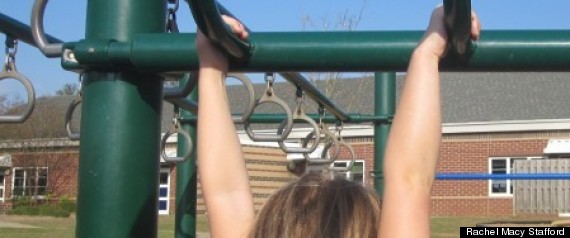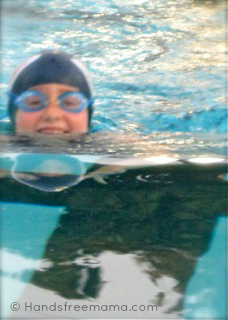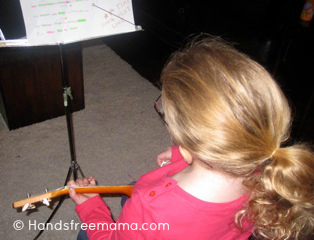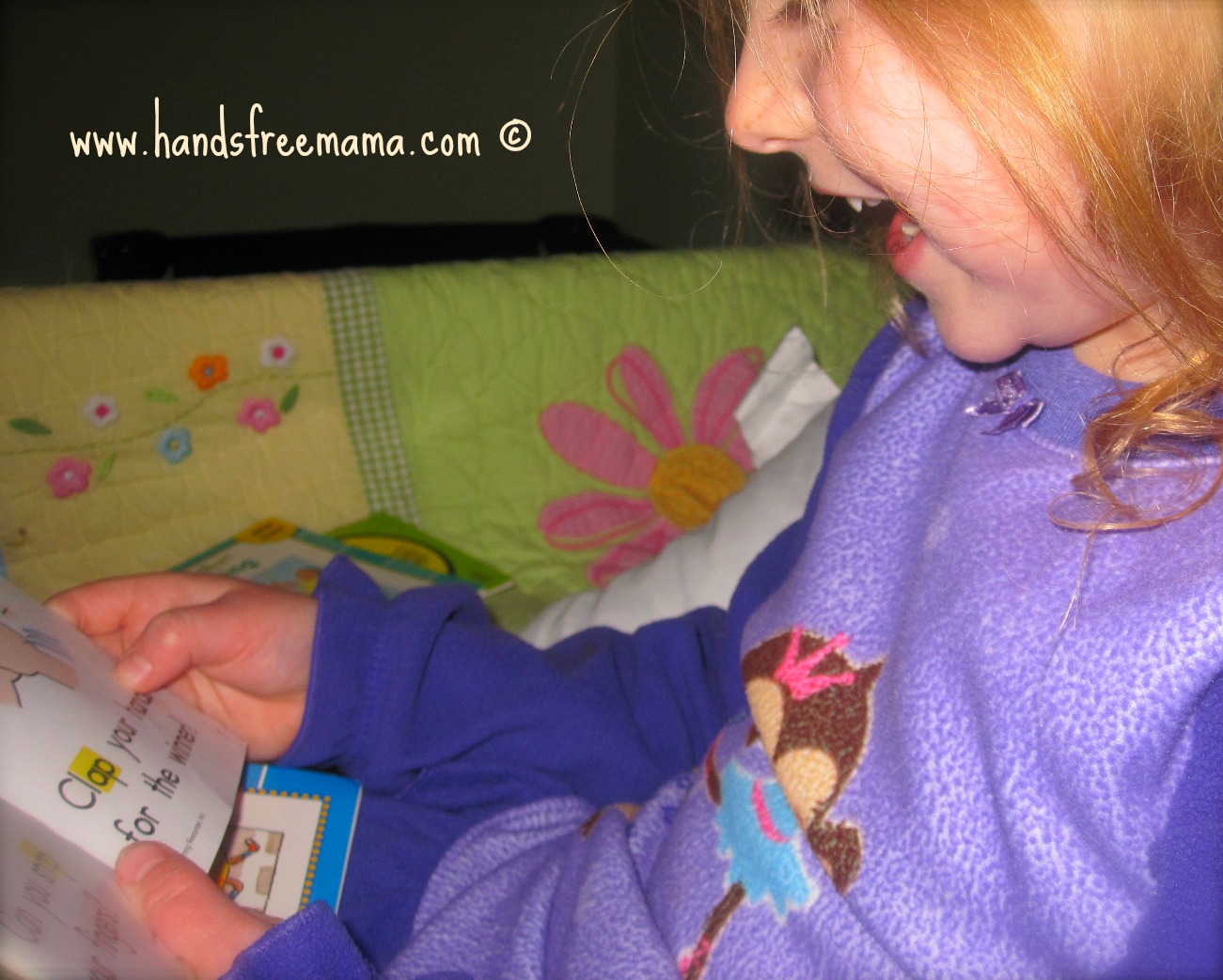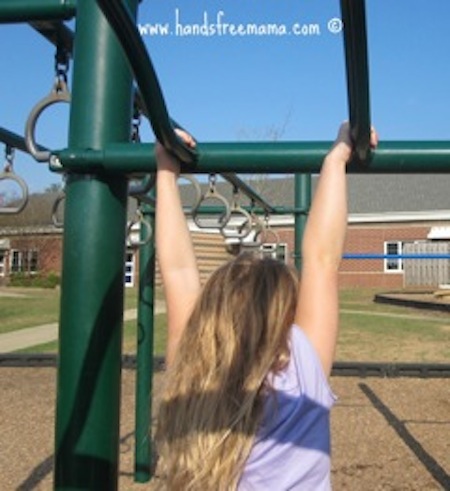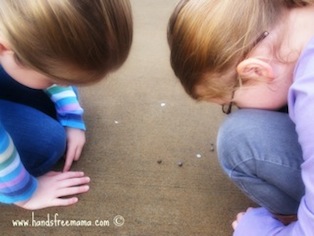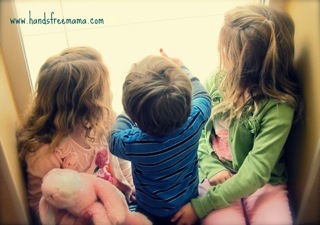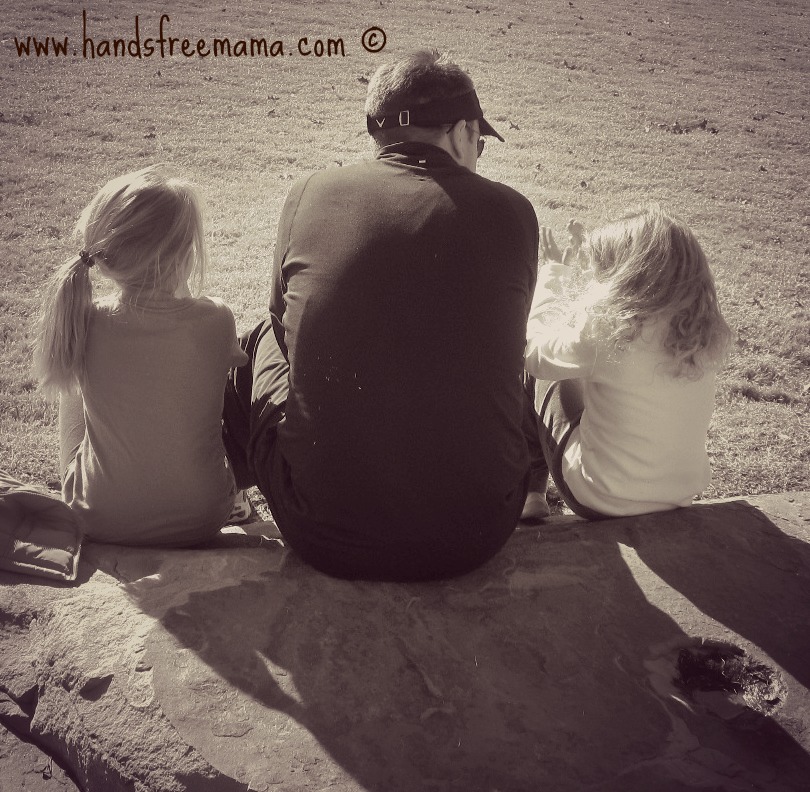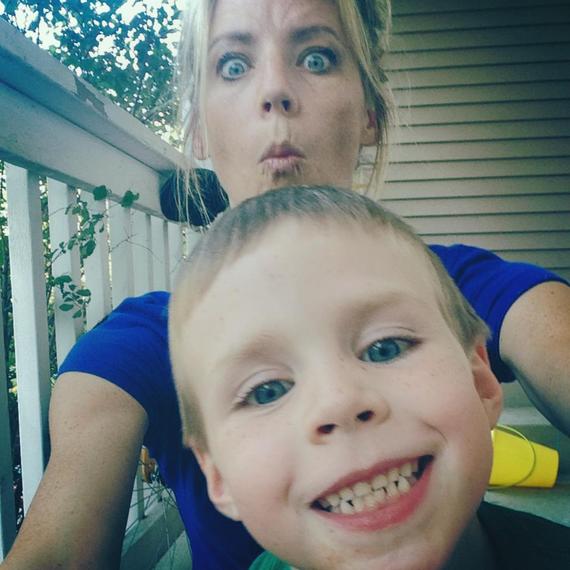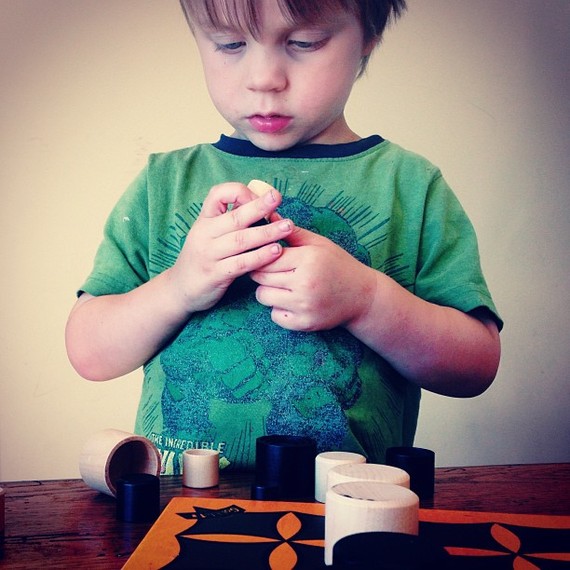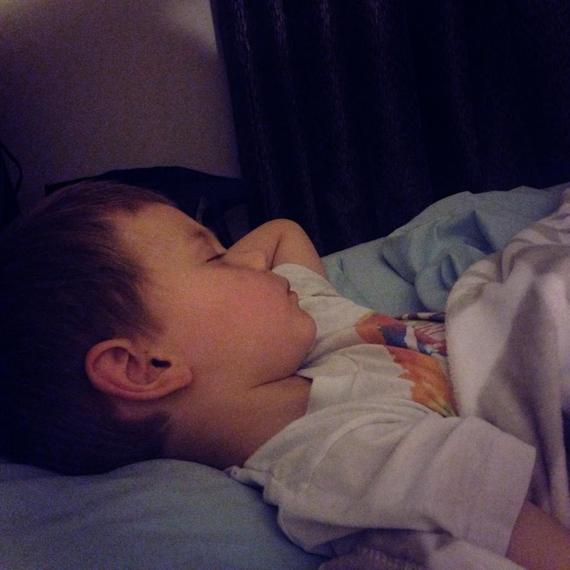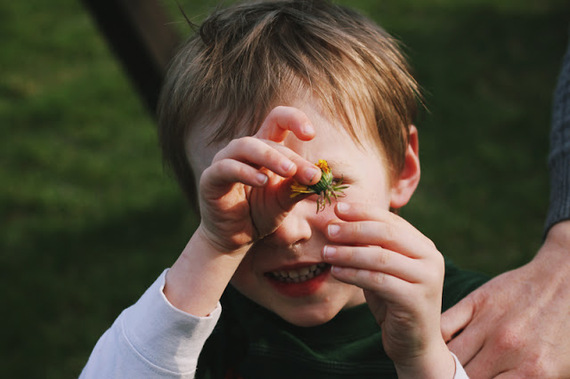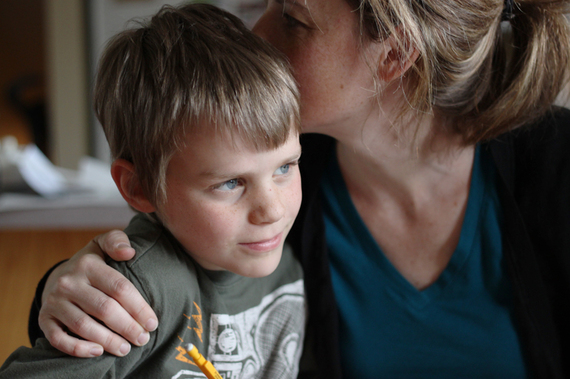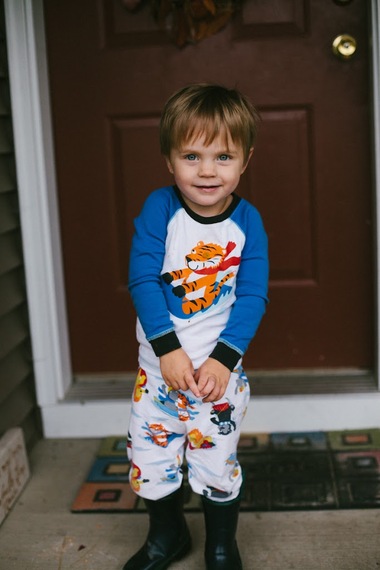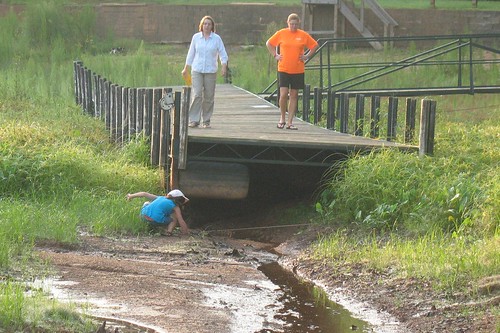
hoyasmeg via Compfight cc
Dear Mom,
I've seen you around. I've seen you screaming at your kids in public, I've seen you ignoring them at the playground, I've seen you unshowered and wearing last night's pajama pants at preschool drop-off. I've seen you begging your children, bribing them, threatening them. I've seen you shouting back and forth with your husband, with your mom, with the police officer at the crosswalk.
I've seen you running around with your kids, getting dirty and occasionally swearing audibly when you bang a knee. I've seen you sharing a milkshake with a manic 4-year-old. I've seen you wiping your kids' boogers with your bare palm, and then smearing them on the back of your jeans. I've seen you carry your toddler flopped over the crook of your arm while chasing a runaway ball.
I've also seen you gritting your teeth while your kid screamed at you for making him practice piano, or soccer, or basket weaving or whatever it was. I've seen you close your eyes and breathe slowly after finding a gallon of milk dumped into your trunk. I've seen you crying into the sink while you desperately scrub crayon off your best designer purse. I've seen you pacing in front of the house.
I've seen you at the hospital waiting room. I've seen you at the pharmacy counter. I've seen you looking tired and frightened.
I've seen a lot of you, actually.
I see you every single day.
I don't know if you planned to be a parent or not. If you always knew from your earliest years that you wanted to bring children into the world, to tend to them, or if motherhood was thrust upon you unexpectedly. I don't know if it meets your expectations, or if you spent your first days as a mom terrified that you would never feel what you imagined "motherly love" would feel like for your child. I don't know if you struggled with infertility, or with pregnancy loss, or with a traumatic birth. I don't know if you created your child with your body, or created your family by welcoming your child into it.
But I know a lot about you.
I know that you didn't get everything that you wanted. I know that you got a wealth of things you never knew you wanted until they were there in front of you. I know that you don't believe that you're doing your best, that you think you can do better. I know you are doing better than you think.
I know that when you look at your child, your children, you see yourself. And I know that you don't, that you see a stranger who can't understand why the small details of childhood that were so important to you are a bother to this small person who resembles you.
I know that you want to throw a lamp at your teenager's head sometimes. I know you want to toss your 3-year-old out the window once in a while.
I know that some nights, once it's finally quiet, you curl up in bed and cry. I know that sometimes, you don't, even though you wanted to.
I know that some days are so hard that all you want is for them to end, and then at bedtime your children hug you and kiss you and tell you how much they love you and want to be like you, and you wish the day could last forever.
But it never does. The day always ends, and the next day brings new challenges. Fevers, heartbreak, art projects, new friends, new pets, new fights. And every day you do what you need to do.
You take care of things, because that's your job. You go to work, or you fill up the crock pot, or you climb into the garden, or strap the baby to your back and pull out the vacuum cleaner.
You drop everything you're doing to moderate an argument over whose turn it is to use a specifically colored marker, or to kiss a boo-boo, or to have a conversation about what kind of lipstick Pinocchio's Mommy wears.
I know that you have tickle fights in blanket forts, and that you have the words to at least eight different picture books memorized. I've heard that you dance like a wild woman when it's just you and them. That you have no shame about farting or belching in their presence, that you make up goofy songs about peas and potatoes and cheese.
I know that an hour past bedtime, you drop what you're doing and trim the fingernail that your 3-year-old insists is keeping her up. I know that you stop cleaning dishes because your kids insist you need to join their tea party. I know you fed your kids PB&J for four days straight when you had the flu. I know that you eat leftover crusts over the sink while your kids watch "Super Why."
I know you didn't expect most of this. I know you didn't anticipate loving somebody so intensely, or loathing your post-baby body so much, or being so tired or being the mom you've turned out to be.
You thought you had it figured out. Or you were blind and terrified. You hired the perfect nanny. Or you quit your job and learned to assemble flat-packed baby furniture. You get confused by the conflict of feeling like nothing has changed since you were free and unfettered by children, and looking back on the choices you made as though an impostor was wearing your skin.
You're not a perfect mom. No matter how you try, no matter what you do. You will never be a perfect mom.
And maybe that haunts you. Or maybe you've made peace with it. Or maybe it was never a problem to begin with.
No matter how much you do, there is always more. No matter how little you do, when the day is over, your children are still loved. They still smile at you, believing you have magical powers to fix almost anything. No matter what happened at work, or at school, or in playgroup, you have still done everything in your power to ensure that the next morning will dawn and your children will be as happy, healthy, and wise as could possibly be hoped.
There's an old Yiddish saying: "There is one perfect child in the world, and every mother has it."
Unfortunately, there are no perfect parents. Your kids will grow up determined to be different than you. They will grow up certain that they won't make their kids take piano lessons, or they'll be more lenient, or more strict, or have more kids, or have fewer, or have none at all.
No matter how far from perfect you are, you are better than you think.
Someday your kids will be running around like crazy people at synagogue and concuss themselves on a hand rail, and somebody will still walk up to you and tell you what a beautiful family you have. You'll be at the park and your kids will be covered in mud and jam up to the elbows, smearing your car with sugary cement, and a pregnant lady will stop and smile at you wistfully.
No matter how many doubts you might have, you never need doubt this one thing: You are not perfect.
And that's good. Because really, neither is your child. And that means nobody can care for them the way you can, with the wealth of your understanding and your experience. Nobody knows what your child's squall means, or what their jokes mean, or why they are crying better than you do.
And since no mother is perfect, chances are you are caught in a two billion way tie for Best Mom in the World.
Congratulations, Best Mom in the World. You're not perfect.
You are as good as anybody can get.
http://www.huffingtonpost.com/lea-grover/dear-less-than-perfect-mom_b_3184445.html?ir=Parents&utm_campaign=021915&utm_medium=email&utm_source=Alert-parents&utm_content=FullStory&ncid=newsltushpmg00000003

